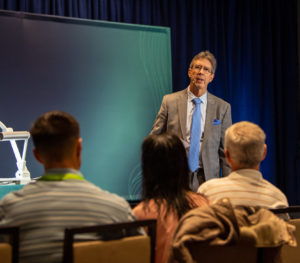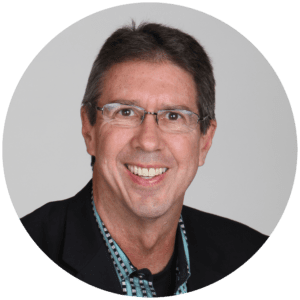W
hat you don't know may hurt you.”
We hear this phrase all the time.
We are people who like to be “in the know.” We like to learn. We like to be in control of our lives. We'll do what it takes to figure things out. We've been taught to carry the load on our own shoulders – it's up to us to get it done, right?
A certain part of that is true. Yes, you do need to take responsibility for what you want in life. You have to carry the torch for creating security, the career path, or whatever it is you're trying to do. It is up to you as an individual to do that.
But very quickly, we begin to discover that we cannot be the expert at everything. There is just too much information out there… too many areas of life. Our small time capsules are not large enough for us to figure out everything on our own. We’re not taught this in dental school.
But if you don’t embrace this reality, you will quickly find yourself facing the limitations of your time, intelligence and expertise – both in your practice and your wealth-building.
It is key that we do not try to do everything on our own.
But what does it look like to leverage the experience, expertise and wisdom of others successfully without the risk that doing so entails? What you don’t know can hurt you. How do we manage the risk that comes with not being our own expert at everything?
As a case study:
I just spoke to a practitioner who is 30 years old and just getting started. He got married this summer and is preparing to buy a practice. He's already realizing that he needs to do things differently than his father (who is also a dentist).
His father is 64 and getting ready to retire. The son has great respect for his father, who went all the way through and got his Masters in the AGD program. He’s obviously a very proficient dentist. I'm sure he has the technical expertise you would expect from a classically solid and successful expert clinician.
But the son doesn't want to follow his father's footsteps in how much his father worked.
Now, there’s no disrespect there at all. He loves his father, his father provided well, but the son told me, “My father was never around.”
Why? He was working hard his whole life. He worked 4-5 days per week for his entire career – only taking off one Friday, every two weeks. That's it. For a highly capable, very proficient, and very dedicated dentist – Why is that that case?
Why was he compelled to work so hard?
Number one, he put everything he had into one skillset. You can't put all your eggs in one basket.
Even if you desire to be proficient in your career path or technical training (which is a good thing), you can't bank everything on that. Your technical skills – the ones you put all this time and effort into acquiring and elevating through continuing education – are only going to bring about 15% of what you really want in life (Freedom, more time).
The other 85% of what you want, you have to develop other skill sets to obtain. In particular, you'll need to develop your financial acumen.
The 30-year-old dentist told me that his father never had time to focus on (or had a real interest in) his financial future. He always gave his money to a money manager who socked it away in Wall Street 401(k)s – the standard stuff – because he was too busy, and “it's too complex, so I'll just get somebody else.”
The father realized he couldn’t be the expert in finance/investing and dentist retirement planning, so he abdicated that responsibility to a financial advisor and hoped for the best.

Now, at age 64… the father is still on the treadmill. He’s been on the treadmill now, for 30+ years, grinding it out. He’s doing great work, but he never had the free time to spend with his family when his son and other children were growing up.
To his credit, the father tried to utilize the expertise of a financial advisor… but there is a difference between collaboration and abdication. The father didn’t know what he didn’t know. And the result was a lifetime spent working very hard on the hamster wheel.
His son is looking for a different path. He's already thinking differently. The first part of getting anywhere in life – to change your life – is to think differently, to have curiosity about other ways of doing things besides what the majority says to do.
The majority, in my opinion, is typically wrong – wrong about the things we really want in life.
The majority has constructs that have been passed down from generation to generation, or through industry: “This is how you do it when you're a doctor, a dentist, an engineer, a baker, a butcher, a candlestick maker, etc. This is how you do life.”
I’m here to tell you, you don't have to do it that way.
You've got to change your environment. You've got to be curious. You've got to be willing to take some steps outside of the arena you’re surrounded by. Our mindset determines how we think. How we think determines the decisions we make, and decisions determine the behavior or the actions we take.
It's a continuous pulse. And if you're not thinking differently, or you're afraid to think differently, or you haven't been given the permission to think differently, you're not going to do anything differently. You're not going to get results that you really want in your life.
What we all want is more time, more Freedom.
And yet we have been conditioned to resign ourselves to a mystical retirement age – 60, 65, or 70 – which is crazy for somebody who is educated and puts in the time, the risk and the capital as a dentist (or any small business entrepreneur for that matter).
You’ve risked too much to feel compelled to stay on a treadmill for 35+ years and still wonder when you’re ready to take your foot off the pedal: Do I have enough?
What you don’t know CAN hurt you.
But abdicating your future (i.e. dentist retirement planning and investing) to a financial advisor on Wall Street is not the answer.
It is possible to become the CEO of your life and orchestrate the component parts (active income, debt management, asset accumulation, passive income, etc) without being the individual expert in each and every discipline.
The key is becoming your own financial advocate and developing the right strategic collaborations.
Becoming your own financial advocate does NOT mean you are an expert in every field. It means you develop the transferable skill sets of due diligence and strategic collaboration.
These are skills that require time and attention to develop, but that will be the key to creating the life you really want.
That’s what we do at Freedom Founders.
We have a different way. Not only has it worked for me (if you don’t know my story, I'm the product of the product), but it's worked for hundreds of other dentists.
We know what we're doing works in the right hands. We’ve seen the results of these frameworks over and over again.
It IS possible to create real, meaningful freedom decades ahead of a retirement age. IF are you willing to take a chance and follow the road less traveled.
Are you willing to take the risk to try something different? It's always up to you.
You've got to be interested in your future more than anybody else is. After all, it's your future. Stay focused on it.
- David Tweet
P.S. Whenever you’re ready, here are some other ways I can help fast track you to your Freedom goal (you’re closer than you think) :
1. Schedule a Call with My Team:
If you’d like to replace your active practice income with passive investment income within 2-3 years, and you have at least $1M in available capital (can include residential/practice equity or practice sale), then schedule a call with my team. If it looks like there is a mutual fit, you’ll have the opportunity to attend one of our upcoming member events as a guest. www.freedomfounders.com/schedule
2. Become a Full-Cycle Investor:
There are many self-proclaimed genius investors today who think everything they touch turns to gold. But they’re about to learn the hard way what others have gained through “expensive” experience. I’m offering a free report on how to become a full-cycle investor, who knows how to preserve and grow capital in Up and Down markets. Will you be prepared when the inevitable recession hits? Get your free report here.
3. Get Your Free Retirement Scorecard:
Benchmark your retirement and wealth-building against hundreds of other practice professionals, and get personalized feedback on your biggest opportunities and leverage points. Click here to take the 3 minute assessment and get your scorecard.


